 We are delighted to inform you that we will be attending the SCMS Annual Conference in Toronto, Canada on March 14th-18th, 2018. Please stop by our stand to meet the editor, browse our latest selection of books at discounted prices and pick up free journal samples.
We are delighted to inform you that we will be attending the SCMS Annual Conference in Toronto, Canada on March 14th-18th, 2018. Please stop by our stand to meet the editor, browse our latest selection of books at discounted prices and pick up free journal samples.
If you are unable to attend, we would like to provide you with a special discount offer. For a limited time, receive a 25% discount on all Film Studies and Media Studies titles found on our website. At checkout, simply enter the discount code SCMS18. Visit our website to browse our newly published interactive online Film & Media Studies 2018 Catalog or use the new enhanced subject searching features for a complete listing of all published and forthcoming titles.
We hope to see you in Toronto!
NEW
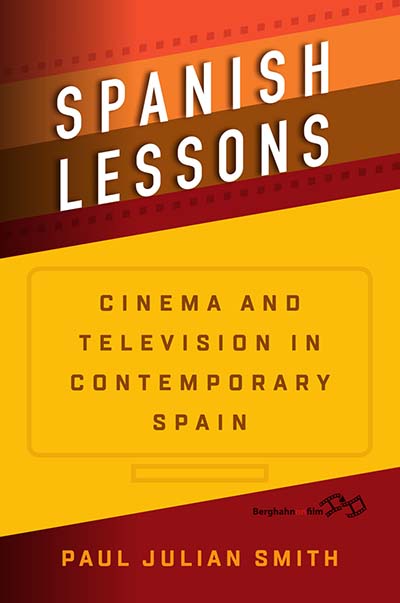 SPANISH LESSONS
SPANISH LESSONS
Cinema and Television in Contemporary Spain
Paul Julian Smith
Though unjustly neglected by English-language audiences, Spanish film and television not only represent a remarkably influential and vibrant cultural industry; they are also a fertile site of innovation in the production of “transmedia” works that bridge narrative forms. In Spanish Lessons, Paul Julian Smith provides an engaging exploration of visual culture in an era of collapsing genre boundaries, accelerating technological change, and political-economic tumult. Whether generating new insights into the work of key figures like Pedro Almodóvar, comparing media depictions of Spain’s economic woes, or giving long-overdue critical attention to quality television series, Smith’s book is a consistently lively and accessible cultural investigation.
Read Introduction: Film, Television, Transmedia
STORIES MAKE THE WORLD
Reflections on Storytelling and the Art of the Documentary
Stephen Most
Since the beginning of human history, stories have helped people make sense of their lives and their world. Today, an understanding of storytelling is invaluable as we seek to orient ourselves within a flood of raw information and an unprecedented variety of supposedly true accounts. In Stories Make the World, award-winning screenwriter Stephen Most offers a captivating, refreshingly heartfelt exploration of how documentary filmmakers and other storytellers come to understand their subjects and cast light on the world through their art. Drawing on the author’s decades of experience behind the scenes of television and film documentaries, this is an indispensable account of the principles and paradoxes that attend the quest to represent reality truthfully.
Read Introduction
To stream and download films in Stories Make the World, go to www.videoproject.com/Stories
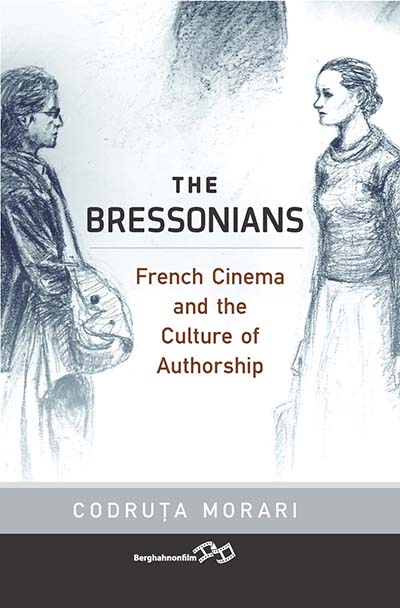 THE BRESSONIANS
THE BRESSONIANS
French Cinema and the Culture of Authorship
Codruţa Morari
How should we understand film authorship in an era when the idea of the solitary and sovereign auteur has come under attack, with critics proclaiming the death of the author and the end of cinema? The Bressonians provides an answer in the form of a strikingly original study of Bresson and his influence on the work of filmmakers Jean Eustache and Maurice Pialat. Extending the discourse of authorship beyond the idea of a singular visionary, it explores how the imperatives of excellence function within cinema’s pluralistic community. Bresson’s example offered both an artistic legacy and a creative burden within which filmmakers reckoned in different, often arduous, and altogether compelling ways.
Read Introduction
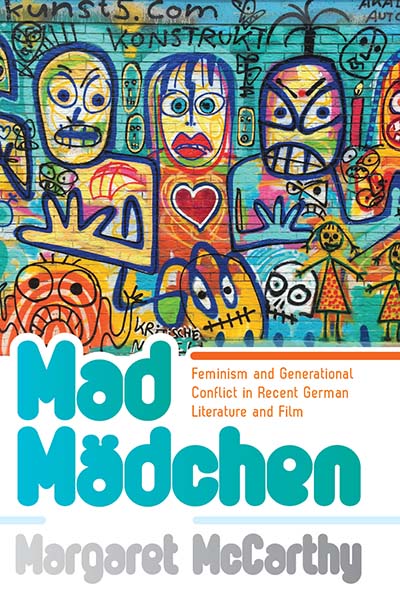 MAD MÄDCHEN
MAD MÄDCHEN
Feminism and Generational Conflict in Recent German Literature and Film
Margaret McCarthy
The last two decades have been transformational, often discordant ones for German feminism, as a new cohort of activists has come of age and challenged many of the movement’s strategic and philosophical orthodoxies. Mad Mädchen offers an incisive analysis of these trans-generational debates, identifying the mother-daughter themes and other tropes that have defined their representation in German literature, film, and media. Author Margaret McCarthy investigates female subjectivity as it processes political discourse to define itself through both differences and affinities among women. Ultimately, such a model suggests new ways of re-imagining feminist solidarity across generational, ethnic, and racial lines.
Read Introduction
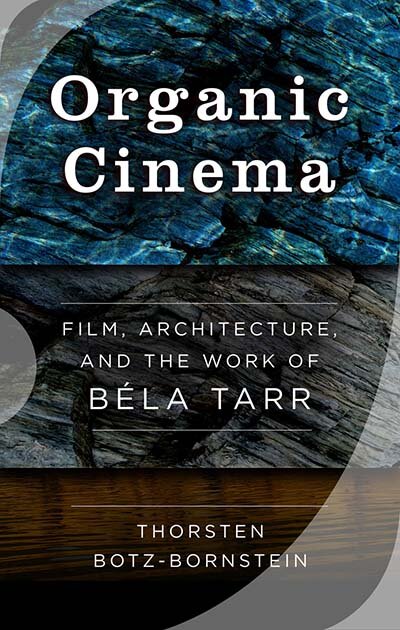 ORGANIC CINEMA
ORGANIC CINEMA
Film, Architecture, and the Work of Béla Tarr
Thorsten Botz-Bornstein
The “organic” is by now a venerable concept within aesthetics, architecture, and art history, but what might such a term mean within the spatialities and temporalities of film? By way of an answer, this concise and innovative study locates organicity in the work of Béla Tarr, the renowned Hungarian filmmaker and pioneer of the “slow cinema” movement. Through a wholly original analysis of the long take and other signature features of Tarr’s work, author Thorsten Botz-Bornstein establishes compelling links between the seemingly remote spheres of film and architecture, revealing shared organic principles that emphasize the transcendence of boundaries.
Read Introduction
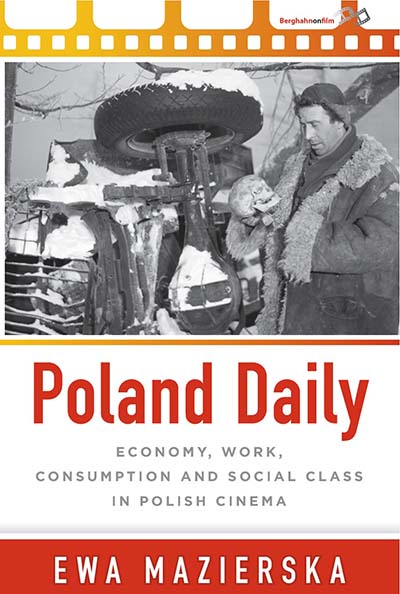 POLAND DAILY
POLAND DAILY
Economy, Work, Consumption and Social Class in Polish Cinema
Ewa Mazierska
Like many Eastern European countries, Poland has seen a succession of divergent economic and political regimes over the last century, from prewar “embedded liberalism,” through the state socialism of the Soviet era, to the present neoliberal moment. Its cinema has been inflected by these changing historical circumstances, both mirroring and resisting them. This volume is the first to analyze the entirety of the nation’s film history—from the reemergence of an independent Poland in 1918 to the present day—through the lenses of political economy and social class, showing how Polish cinema documented ordinary life while bearing the hallmarks of specific ideologies.
Read Introduction
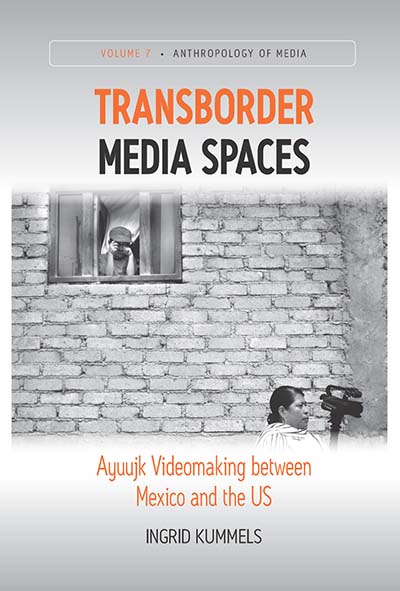 TRANSBORDER MEDIA SPACES
TRANSBORDER MEDIA SPACES
Ayuujk Videomaking between Mexico and the US
Ingrid Kummels
Volume 7, Anthropology of Media
Transborder Media Spaces offers a new perspective on how media forms like photography, video, radio, television, and the Internet have been appropriated by Mexican indigenous people in the light of transnational migration and ethnopolitical movements. In producing and consuming self-determined media genres, actors in Tamazulapam Mixe and its diaspora community in Los Angeles open up media spaces and seek to forge more equal relations both within Mexico and beyond its borders. It is within these spaces that Ayuujk people carve out their own, at times conflicting, visions of development, modernity, gender, and what it means to be indigenous in the twenty-first century.
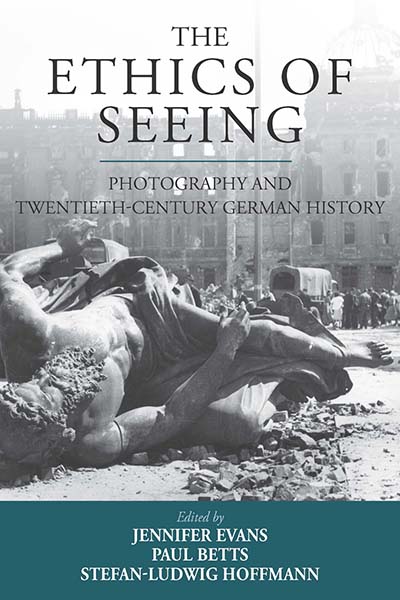 THE ETHICS OF SEEING
THE ETHICS OF SEEING
Photography and Twentieth-Century German History
Edited by Jennifer Evans, Paul Betts, and Stefan-Ludwig Hoffmann
Volume 21, Studies in German History
Throughout Germany’s tumultuous twentieth century, photography was an indispensable form of documentation. Whether acting as artists, witnesses, or reformers, both professional and amateur photographers chronicled social worlds through successive periods of radical upheaval. The Ethics of Seeing brings together an international group of scholars to explore the complex relationship between the visual and the historic in German history. Emphasizing the transformation of the visual arena and the ways in which ordinary people made sense of world events, these revealing case studies illustrate photography’s multilayered role as a new form of representation, a means to subjective experience, and a fresh mode of narrating the past.
Read Introduction: Photography as an Ethics of Seeing
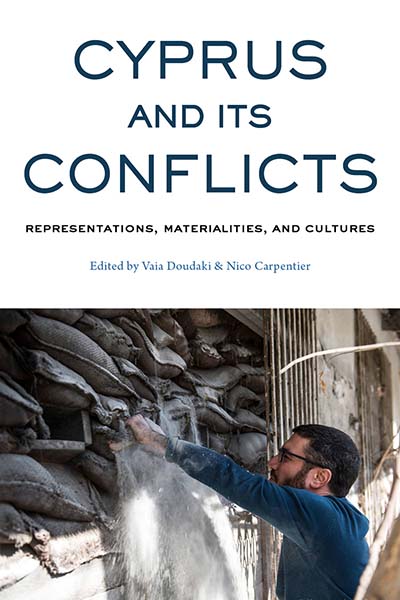 CYPRUS AND ITS CONFLICTS
CYPRUS AND ITS CONFLICTS
Representations, Materialities, and Cultures
Edited by Vaia Doudaki and Nico Carpentier
The Mediterranean island of Cyprus is the site of enduring political, military, and economic conflict. This interdisciplinary collection takes Cyprus as a geographical, cultural and political point of reference for understanding how conflict is mediated, represented, reconstructed, experienced, and transformed. Through methodologically diverse case studies of a wide range of topics—including public art, urban spaces, and print, broadcast and digital media—it assembles an impressively multifaceted perspective, one that provides broad insights into the complex interplay of culture, conflict, and identity.
Read Introduction: A Multidisciplinary and Multiperspectival Approach to Conflict
NEW IN PAPERBACK
 STARS AND STARDOM IN BRAZILIAN CINEMA
STARS AND STARDOM IN BRAZILIAN CINEMA
Edited by Tim Bergfelder, Lisa Shaw and João Luiz Vieira
“The volume embraces diverse and nuanced approaches to stardom…; all [contributors] succeed in putting their findings into readable prose. A thorough scholarly apparatus is included. The volume represents a major contribution to star studies.” · Choice
Despite the recent explosion of scholarly interest in “star studies,” Brazilian film has received comparatively little attention. As this volume demonstrates, however, the richness of Brazilian stardom extends well beyond the ubiquitous Carmen Miranda. Among the studies assembled here are fascinating explorations of figures such as Eliane Lage (the star attraction of São Paulo’s Vera Cruz studios), cult horror movie auteur Coffin Joe, and Lázaro Ramos, the most visible Afro-Brazilian actor today. At the same time, contributors interrogate the inner workings of the star system in Brazil, from the pioneering efforts of silent-era actresses to the recent advent of the non-professional movie star.
Read Introduction
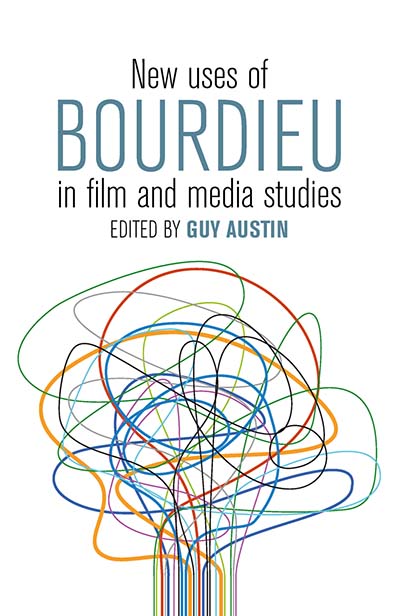 NEW USES OF BOURDIEU IN FILM AND MEDIA STUDIES
NEW USES OF BOURDIEU IN FILM AND MEDIA STUDIES
Edited by Guy Austin
Through his influential work on cultural capital and social mobility, the French sociologist Pierre Bourdieu has provided critical insights into the complex interactions of power, class, and culture in the modern era. Ubiquitous though Bourdieu’s theories are, however, they have only intermittently been used to study some of the most important forms of cultural production today: cinema and new media. With topics ranging from film festivals and photography to constantly evolving mobile technologies, this collection demonstrates the enormous relevance that Bourdieu’s key concepts hold for the field of media studies, deploying them as powerful tools of analysis and forging new avenues of inquiry in the process.
Read Introduction: Bourdieu on Media and Film
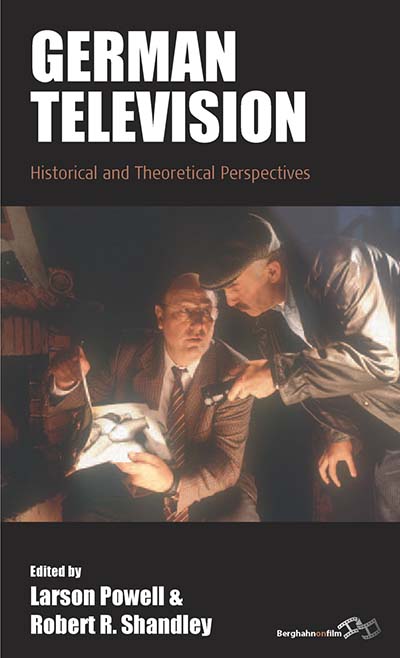 GERMAN TELEVISION
GERMAN TELEVISION
Historical and Theoretical Perspectives
Edited by Larson Powell and Robert R. Shandley
Volume 19, Film Europa
“This collection of essays is the first of its kind in English … this volume offers well-researched, in-depth reflection on the subject of German television ranging from historical overview to case study and spanning the history of West and East Germany, the key relationship between film and television, and the transnational dimensions of programming, technology and audience.” · Historical Journal of Film, Radio and Television
Long overlooked by scholars and critics, the history and aesthetics of German television have only recently begun to attract serious, sustained attention, and then largely within Germany. This ambitious volume, the first in English on the subject, provides a much-needed corrective in the form of penetrating essays on the distinctive theories, practices, and social-historical contexts that have defined television in Germany. Encompassing developments from the dawn of the medium through the Cold War and post-reunification, this is an essential introduction to a rich and varied media tradition.
Read Introduction
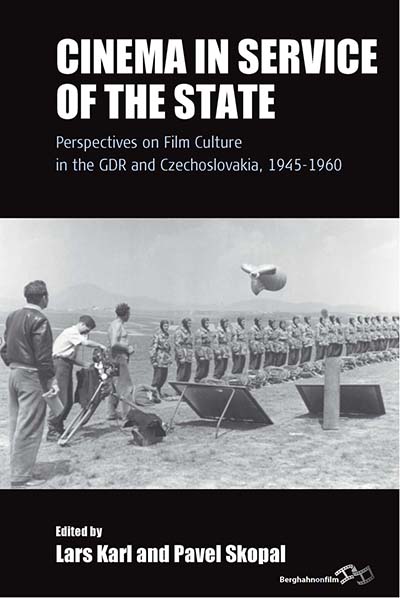 CINEMA IN SERVICE OF THE STATE
CINEMA IN SERVICE OF THE STATE
Perspectives on Film Culture in the GDR and Czechoslovakia, 1945-1960
Edited by Lars Karl and Pavel Skopal
Volume 18, Film Europa
“Lars Karl and Pavel Skopal have produced an intriguing edited volume that addresses a significant lacuna in transnational cinema scholarship.” • Historical Journal of Film, Radio and Television
The national cinemas of Czechoslovakia and East Germany were two of the most vital sites of filmmaking in the Eastern Bloc, and over the course of two decades, they contributed to and were shaped by such significant developments as Sovietization, de-Stalinization, and the conservative retrenchment of the late 1950s. This volume comprehensively explores the postwar film cultures of both nations, using a “stereoscopic” approach that traces their similarities and divergences to form a richly contextualized portrait. Ranging from features to children’s cinema to film festivals, the studies gathered here provide new insights into the ideological, political, and economic dimensions of Cold War cultural production.
Read Introduction
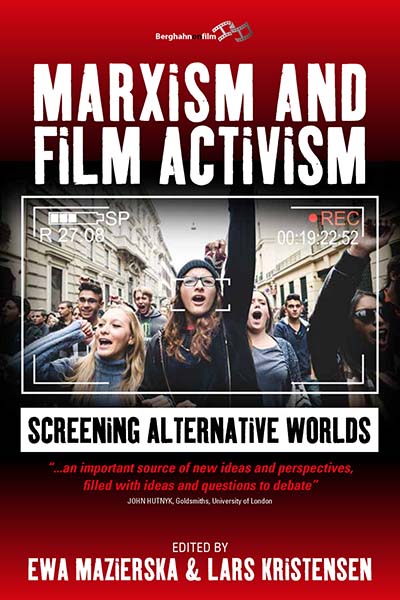 MARXISM AND FILM ACTIVISM
MARXISM AND FILM ACTIVISM
Screening Alternative Worlds
Edited by Ewa Mazierska and Lars Kristensen
In Theses on Feuerbach, Marx writes, “The philosophers have only interpreted the world differently; the point is to change it.” This collection examines how filmmakers have tried to change the world by engaging in emancipatory politics through their work, and how audiences have received them. It presents a wide spectrum of case studies, covering both film and digital technology, with examples from throughout cinematic history and around the world, including Soviet Russia, Palestine, South America, and France. Discussions range from the classic Marxist cinema of Aleksandr Medvedkin, Chris Marker, and Jean-Luc Godard, to recent media such as 5 Broken Cameras (2010), the phenomena of video-blogging, and bicycle activism films.
Read Introduction
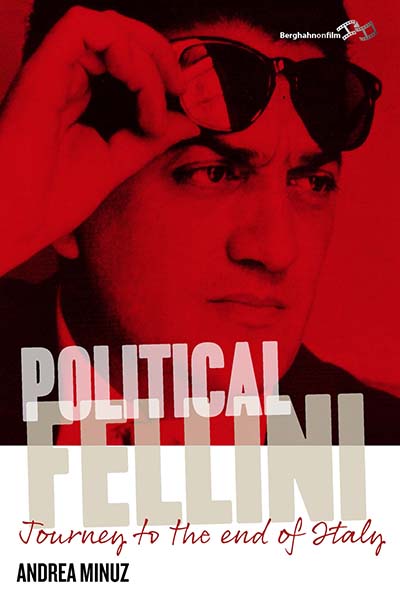 POLITICAL FELLINI
POLITICAL FELLINI
Journey to the End of Italy
Andrea Minuz
Translated from the Italian by Marcus Perryman
“Political Fellini is a well-researched and -referenced study of Fedrerico Fellini, Italian cinema, and culture. He gives deep insight into Italian cinema and political culture. Both students and experts of cinema will hugely benefit from Political Fellini. It is the first full-length biography and study of Fedrerico Fellini as a great Italian filmmaker. It is a must read for everyone who is interested in cinema.” · The Washington Book Review
Federico Fellini is often considered a disengaged filmmaker, interested in self-referential dreams and grotesquerie rather than contemporary politics. This book challenges that myth by examining the filmmaker’s reception in Italy, and by exploring his films in the context of significant political debates. By conceiving Fellini’s cinema as an individual expression of the nation’s “mythical biography,” the director’s most celebrated themes and images — a nostalgia for childhood, unattainable female figures, fantasy, the circus, carnival — become symbols of Italy’s traumatic modernity and perpetual adolescence.
Read Introduction: Political Fellini?
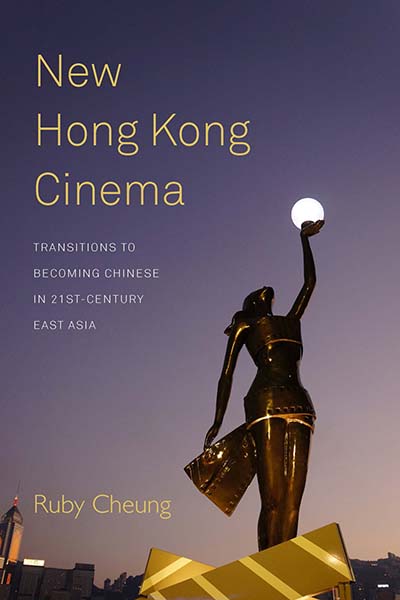 NEW HONG KONG CINEMA
NEW HONG KONG CINEMA
Transitions to Becoming Chinese in 21st-Century East Asia
Ruby Cheung
“Cheung successfully conveys the complex and mutable terrain of contemporary Hong Kong cinema, then and now.” · Film Quarterly
The trajectory of Hong Kong films had been drastically affected long before the city’s official sovereignty transfer from the British to the Chinese in 1997. The change in course has become more visible in recent years as China has aggressively developed its national film industry and assumed the role of powerhouse in East Asia’s cinematic landscape. The author introduces the “Cinema of Transitions” to study the New Hong Kong Cinema and on- and off-screen life against this background. Using examples from the 1980s to the present, this book offers a fresh perspective on how Hong Kong-related Chinese-language films, filmmakers, audiences, and the workings of film business in East Asia have become major platforms on which “transitions” are negotiated.
Read Introduction: The New Hong Kong Cinema, Cinema of Transitions and East Asia
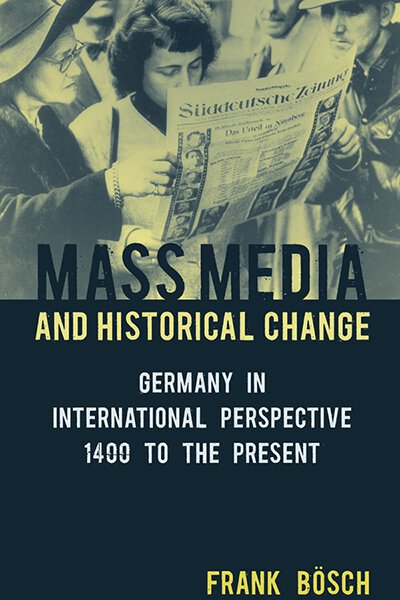 MASS MEDIA AND HISTORICAL CHANGE
MASS MEDIA AND HISTORICAL CHANGE
Germany in International Perspective, 1400 to the Present
Frank Bösch
Translated from the German by Freya Buechter
“…he manages to provide a fascinating panorama of the emergence of new media over the course of more than seven centuries and their interaction with the social, cultural, and political conditions prevailing at different epochs. The book is not a “German media history” in the strict sense, but it does have strong comparative elements as well, offering a side glance on media developments in Europe, the United States, and Asia. Moreover, Bösch competently integrates the history of media evolution with societal interactions and ensuing social and political changes.” · H-German
Media influenced politics, culture, and everyday life long before the invention of the Internet. This book shows how the advent of new media has changed societies in modern history, focusing not on the specifics of technology but rather on their distribution, use, and impact. Using Germany as an example for international trends, it compares the advent of printing in Europe and East Asia, and the impact of the press on revolutions, nation building, and wars in North America and Europe. The rise of tabloids and film is discussed as an international phenomenon, as the importance of media during National Socialism is looked at in comparison with Fascist Italy and Spain. Finally, this book offers a precise analysis of media during the Cold War, with divided Germany providing the central case study.
Read Introduction: Approaches to Media History
FORTHCOMING
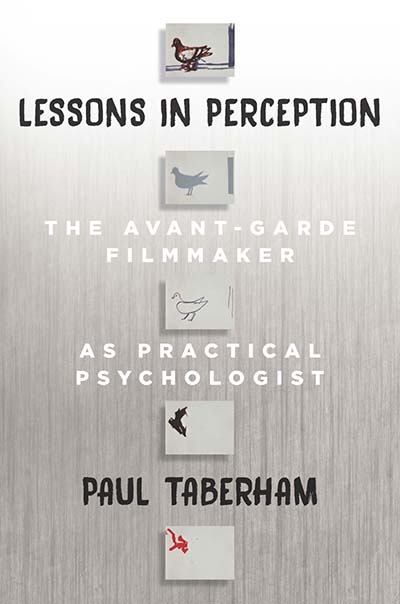 LESSONS IN PERCEPTION
LESSONS IN PERCEPTION
The Avant-Garde Filmmaker as Practical Psychologist
Paul Taberham
Narrative comprehension, memory, motion, depth perception, synesthesia, hallucination and dreaming have long been objects of fascination for cognitive psychologists. They have also been among the most potent sources of creative inspiration for experimental filmmakers. Lessons in Perception melds film theory and cognitive science in a stimulating investigation of the work of iconic experimental artists such as Stan Brakhage, Robert Breer, Maya Deren, and Jordan Belson. In illustrating how avant-garde filmmakers draw from their own mental and perceptual capacities, author Paul Taberham offers a compelling account of how their works expand the spectator’s range of aesthetic sensitivities and open creative vistas uncharted by commercial cinema.
Berghahn Journals
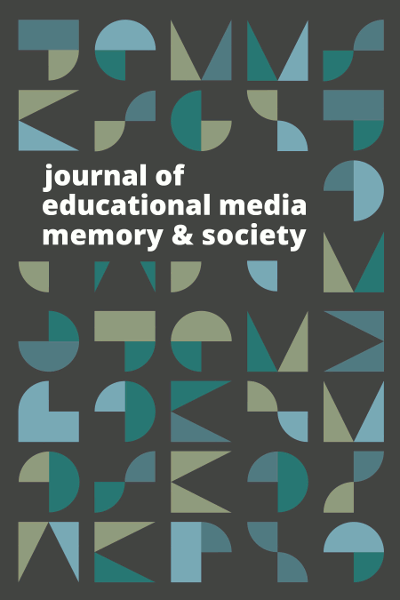 Journal of Educational Media, Memory, and Society
Journal of Educational Media, Memory, and Society
The Journal of Educational Media, Memory, and Society explores perceptions of society as constituted and conveyed in processes of learning and educational media. The focus is on various types of texts (such as textbooks, museums, memorials, films) and their institutional, political, social, economic, and cultural contexts. The construction of collective memory and conceptions of space, the production of meaning, image formation, forms of representation, and perceptions of the “self” and the “other,” as well as processes of identity construction (ethnic, national, regional, religious, institutional, gender) are of particular interest. Special importance is given to the significance of educational media for social cohesion and conflict. The journal is international and interdisciplinary and welcomes empirically based contributions from the humanities and the social sciences as well as theoretical and methodological studies.
 Projections
Projections
The Journal for Movies and Mind
Projections: The Journal for Movies and Mind is an interdisciplinary, peer-reviewed journal that explores the way in which the mind experiences, understands, and interprets the audio-visual and narrative structures of cinema and other visual media. Recognizing cinema as an art form, the journal aims to integrate established traditions of analyzing media aesthetics with current research into perception, cognition and emotion, according to frameworks supplied by psychology, psychoanalysis, and the cognitive and neurosciences. Submissions are welcomed from a variety of scholarly methods within the humanities and the sciences, from aesthetic to empirical, theoretical, and historical approaches. The journal seeks to facilitate a dialogue between scholars in these disciplines and bring the study of moving image media to the forefront of contemporary intellectual debate.
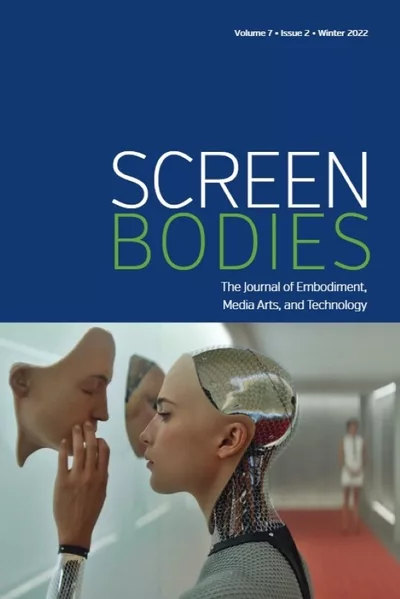 Screen Bodies
Screen Bodies
An Interdisciplinary Journal of Experience, Perception, and Display
Screen Bodies is a peer-reviewed journal focusing on the intersection of Screen Studies and Body Studies across disciplines, institutions, and media. It is a forum promoting research on various aspects of embodiment on and in front of screens through articles, reviews, and interviews. The journal considers moving and still images, whether from the entertainment industry, information technologies, or news and media outlets, including cinema, television, the internet, and gallery spaces. It investigates the private experiences of portable and personal devices and the institutional ones of medical and surveillance imaging. Screen Bodies addresses the portrayal, function, and reception of bodies on and in front of screens from the perspectives of gender and sexuality, feminism and masculinity, trans* studies, queer theory, critical race theory, cyborg studies, and dis/ability studies.

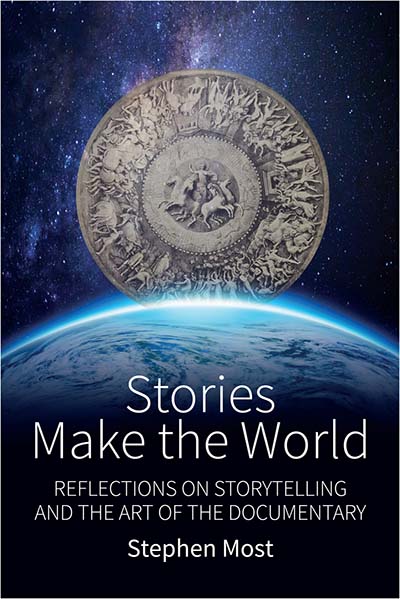 View book trailer!
View book trailer!